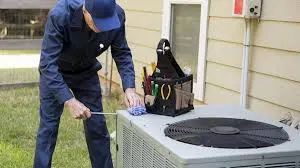Find the Right Therapist For Anxiety and Depression Near You
Struggling with anxiety and depression can be overwhelming, but finding the right therapist can make a world of difference in your journey towards mental health. Here’s a guide to help you navigate this important decision:
Understanding Your Needs
Firstly, assess your needs. Are you dealing with anxiety, depression, or both? Understanding your specific challenges can help narrow down the type of therapist you need. For instance, cognitive-behavioral therapy (CBT) is effective for many with anxiety disorders, while dialectical behavior therapy (DBT) might be recommended for those with more complex emotional needs.
Types of Therapists
Therapists come in various specialties and backgrounds. Psychologists, psychiatrists, counselors, and social workers are all qualified to provide therapy, each with different approaches and expertise. Consider what type of professional might best address your concerns.
Research and Recommendations
Start your search by gathering recommendations from trusted sources such as friends, family, or healthcare providers. Online directories and professional associations can also provide listings of therapists in your area. Look for therapists who specialize in treating anxiety and depression.
Check Credentials
Ensure that any therapist you consider is licensed and accredited. This ensures they have met the professional standards required to practice therapy effectively. Verify their credentials through state licensing boards or professional organizations.
Compatibility and Comfort
The therapeutic relationship is crucial to your progress. Arrange initial consultations with a few therapists to see who you feel most comfortable with. Consider their communication style, empathy, and whether you feel understood and respected during your interactions.
Logistics
Practical considerations such as location, availability, and cost are important. Choose a therapist whose office is conveniently located and whose schedule aligns with yours. Check whether they accept your insurance or offer affordable payment options.
Initial Consultation
Many therapists offer initial consultations either for free or at a reduced rate. Use this opportunity to ask questions about their therapeutic approach, experience with anxiety and depression, and what treatment might look like for you.
Trust Your Instincts
Above all, trust your instincts. Therapy is a collaborative process, and finding the right fit is essential. If you don’t feel a connection with a therapist after a few sessions, don’t hesitate to try someone else. Your comfort and confidence in your therapist’s abilities are paramount to your healing journey.
Conclusion
Finding the right therapist for anxiety and depression involves thoughtful consideration of your needs, research, and trusting your instincts. With the right support, you can effectively manage your symptoms and work towards a healthier, more fulfilling life. Take the time to find a therapist who resonates with you, and don’t hesitate to seek help—it’s a crucial step towards better mental well-being.
Explore

Find a Dentist Near You for Dental Care

Find the Best HVAC Services Near You

Find the Best Plumbers with Free Estimates Near You

Find the Best Physical Therapy Near You

Find The Best Retirement Planning Advisors Near You

Maintaining Comfort: The Importance of HVAC Maintenance and Finding AC Repair Near You

Find Best Local Roofers & Roofing Contractors Near Me

Best Laser Hair Removal Near Me: Find Top Clinics for Smooth, Hair-Free Skin
